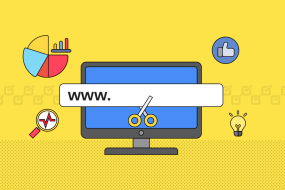
Collecting actionable, duplication-free, and accurate public data is so urgent that the Organization for Economic Cooperation and Development has resources businesses can use. Likewise, many studies reveal the methodological models, steps, and databases companies use for data collection.
But for a small to medium business, the core issue is selecting the right tools for data harvesting. Proxies are one such tool.
When selecting the right proxy, you must determine if its speed, cost, performance, bandwidth, detectability, and advanced features meet your criteria.
When should you opt for a residential proxy, and when to use a datacenter one? Does cost matter more than performance? Or should detectability be the selection criteria?
Let’s discuss these matters with regard to residential proxies.
How Does a Residential Proxy Work?
A residential proxy acts as an intermediary server to route your request to the destination server. Unlike datacenter proxies that take IP addresses from datacenters, residential proxies take them from physical home addresses.
Suppose your IP address is X. The residential proxy you use has the IP address B. Remember that B is an actual IP address an ISP (Internet Service Provider) has provided to a physical home address.
When you use the proxy to access a website, the request will go from B, not X. In this way, the residential proxy masks your IP address and location.
Why Are Residential Proxies Undetected By Websites?
A common issue when using proxies is blacklisting. Since most destination servers do not want you to snoop on their website’s content, they have anti-scraping measures to keep bots out.
When you use datacenter proxies, the destination server can identify them. One reason for their high detectability is that their IP addresses are not associated with a physical address. Second, they do not mimic organic networks or human behavior.
Meanwhile, requests coming from residential proxies seem to be originating from physical addresses. So, the target website sees them as regular users or customers rather than web scrapers.
But even then, if a destination server sees hundreds of requests per minute from the same IP address, it will get suspicious. After all, human users cannot initiate so many requests in such little time.
Residential proxies have a workaround for this. A residential proxy provider will not only provide you with a single residential IP address. Instead, they give you a proxy pool for IP rotation.
Instead of sending hundreds of requests from the same IP address, you can use residential proxies to send hundreds of requests from different IP addresses. It further reduces the risk of detection.
When to Use Residential Proxies for Data Harvesting?
Here are some use cases in which residential proxies are ideal for data harvesting.
- Web Scraping: A residential proxy lets you scrape the web with noticeably fewer threats of blocks and geo-restrictions. Suppose you want to scrape websites in a different country. You can use proxies with IP addresses of that region to bypass geo-restrictions.
- Price Comparison: If your business relies on price comparisons, you can use residential proxies to harvest price information from e-commerce or financial websites. IP rotation will allow you to bypass IP-based rate limits and avoid blocks.
- Market Research: Whether you need to collect public data for competitor analysis or customer sentiment, residential proxies can help. You can collect publicly available data from different markets, countries, and regions easily.
- Trend Analysis: Residential proxies can help harvest public social media data for trend analysis.
When Not to Use Residential Proxies for Data Collection?
Although residential proxies can be beneficial in public data collection, there are some instances where you shouldn’t use them.
- Legally Restricted Sites: You must comply with a website’s TOS (Terms of Service) before scraping it. If the TOS doesn’t allow public data harvesting, don’t use any type of proxy. Also, don’t use residential proxies for data theft or exploiting a website’s intellectual property.
- Small-Scale Data Harvesting: Residential proxies are pretty expensive. If you need to harvest small amounts of public data, it’s better to use datacenter proxies instead. They’ll be budget-friendly and more practical.
- Real-Time Data Harvesting: Residential proxies are not fast enough to keep up with real-time changes, unless they’re purchased from reliable providers. Since they route requests through residential IP addresses, they experience high latency.
Similarly, if you’re planning to harvest data from mobile apps, choose mobile proxies instead. They’re more suitable for the job than residential proxies, which are mainly tailored for web-based scraping.
Conclusion
Residential proxies have many use cases, primarily due to their low detectability and excellent performance. When using residential proxies, make sure you get them from a provider that sources them ethically.
Unethically-sourced residential proxies are slow, unreliable, and easily detectable by websites. That certainly defeats the whole purpose of choosing them in the first place.







